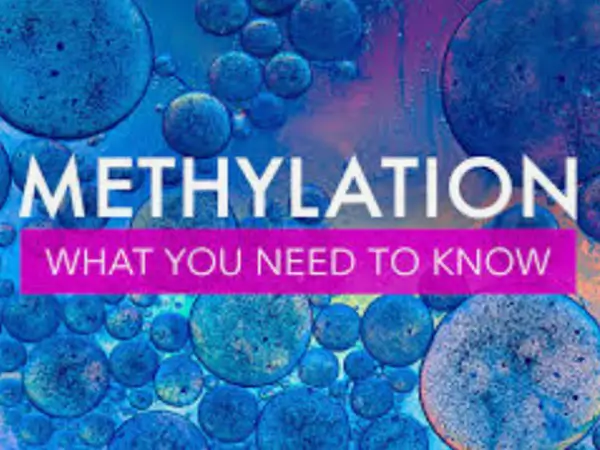Have you ever wondered why you are more sensitive to certain supplements, foods, chemicals, and everything you come in contact with, than your friends or other family members, why you are always tired, why you are depressed, or why you just don’t feel great in general?
It may be partly due to defects in your methylation and detoxification pathways. Methylation reactions involve the transfer of a methyl group (a carbon atom with three hydrogen atoms attached) from one compound to another. When a gene becomes methylated it is either turned off or turned on. This is important because some genes we want to remain turned off, such as a cancer promoting gene, while others we want to be active, such as for detoxification.
How important is methylation?
Methylation is involved in almost every metabolic reaction in your body. Dr. Amy Yasko, one of the world’s leading researchers in the field of nutrigenomics, compares methylation of your genes to traffic lights for the genetic roadways in your body. If these traffic signals are not working correctly, chaos ensues, and the result is a multitude of health problems. Many of us have single nucleotide polymorphisms (SNPs), which are mutations, or slight alterations, in our genes. These minor structural changes in our genes affect how well the gene works. These mutations are like having traffic lights that either turn on too quickly (work too fast) or take too long to turn on (work too slowly). In addition, various factors, including toxins, diet, sleep, exercise, stress, infection, gastrointestinal health, and psychological well-being, can have an on your traffic light (gene) function. The good news is that there are dietary and lifestyle measures, targeted supplementation, and treatments that can help you get around these broken lights or roadblocks.
Examples of processes that require methylation
- DNA and RNA synthesis (required for new cell growth)
- Our body’s ability to fight viruses and infections
- Mood regulation due to synthesis and degradation of neurotransmitters such as dopamine, serotonin, norepinephrine and epinephrine
- Myelination of our nerves (the coating on our nerves is necessary to transmit messages from one nerve to the next)
- Energy production
- Detoxification (elimination of toxins from our body)
These are only a few examples of where methylation is involved in our body’s metabolic reactions. To put it simply, without methylation, your cells die, and eventually, you die. Aging is an example of a decline in methylation.
Examples of health conditions and symptoms associated with poor methylation include:
- Hypertension
- Delayed speech
- Muscle pain
- Insomnia
- Irritable Bowel Syndrome (IBS)
- Fibromyalgia
- Fibromyalgia
- Hand tremor
- Memory loss
- Headaches
- Brain fog
- Depression
- Obsessive Compulsive Disorder (OCD)
- Bipolar Disorder
- ADD/ADHD
- Autism
- Heart disease
- Hormone imbalances
- Multiple chemical sensitivities
- Multiple food sensitivities & allergies
- Gastroesophageal Reflux Disease (GERD)
- Pre-eclampsia
- Inflammatory Bowel Disease (IBD)
- Erectile dysfunction
- Raynaud’s disease
- Cancer
- Alzheimer’s disease
- Parkinson’s disease
- Recurrent miscarriages
- Eczema
- Asthma
- Arthritis
- Aging
- Endometriosis
What can I do about poor methylation?
As you can see, poor methylation can have a strong negative impact on your health. The good news is, we can do testing to find out if you have any methylation defects (SNPs) and then devise a plan together to correct these defects. We can even slow down the aging process by improving methylation. The testing is not expensive and it’s easy to do! Specific treatment for methylation defects is different for each individual but includes lifestyle changes such as diet, stress reduction, regular exercise, ongoing detoxification (e.g. saunas, detox baths), reducing your “toxic load”, treating any chronic infections, and optimizing gastrointestinal health.
Poor methylation can have a strong negative impact on your health. The good news is, we can do testing to find out if you have any methylation defects and then devise a plan together to correct these defects.
We also recommend targeted supplementation to enhance methylation, clean up toxic waste products in the body, and improve digestion and gut health based on your own individual needs. We often encourage doing additional testing such as GI studies and other metabolic testing to attain a complete picture of what needs to be addressed in order to help you feel your best. For example, if you have an infection in your gut or an imbalance in your intestinal flora, it will change how well you methylate, and therefore, change your gene expression. It can all get a little complex, but helping to successfully guide and direct you through the process is part of the health care we provide to you.
Call Dr. Filiz Bakir for a Methylation Consultation Today: 954-224-4461

